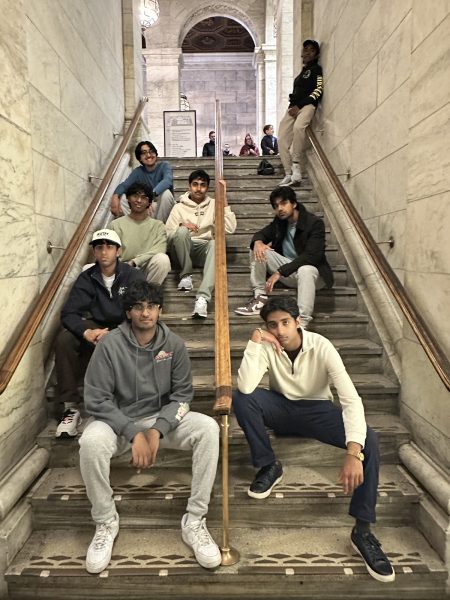Understanding the importance behind legalizing recreational marijuana

Once thought of as a debilitating threat to the United States, marijuana is now becoming legal and decriminalized across many states of the country.
Many Americans are mistakenly disregarding the critical social and economic benefits that would follow the progressive thought pushing for the regulation, decriminalization, and legalization of marijuana on a national scale. Cannabis has been subjected to public opinion and criticism in the past as Americans have generalized the typical user as an unkempt person with the eating habits of that of a blue whale. And considering the plant’s tendency to find itself as a topic of controversy since the early 1900’s, it has resulted in a plethora of skepticism and disagreement among Americans across the broad spectrum of political affiliations.
The good news is that American views on the drug are becoming more and more progressive as time moves on. But despite modern research outlining the benefits that can come from recreational cannabis legalization, a general fear is still holding the United States back.
The outstanding fear in most Americans most likely started with marijuana’s history with illegal immigration and racism (this racism concerning claims targeting the drug’s capability to modify black men into predators). This rather crude mental-image of marijuana has since provided a background justification behind the Marijuana Tax Act of 1937 (which has since been considered unconstitutional) and later the Controlled Substances Act. Although both of the acts follow the premise of making the drug illegal across the United States, it is the Controlled Substance Act that evaluates marijuana as a Schedule 1 drug.
According to the DEA (United States Drug Enforcement Agency), Schedule 1 drugs are identified based off of the assertion that the drug has no accepted medical treatment, a high potential for abuse, and a lack of accepted safety for use for use of the drug. And when compared to the other drugs under Schedule 1 such as heroin, bath salts, LSD, etc. a clear distinction can be made when observing key differentiators amongst these substances.
Take opioids for example. Primarily consisting of painkillers (majority of these narcotics are in schedule 2) and heroin (schedule 1), opioids were the driving force behind 28,657 deaths in 2014. When comparing opioids and its derivatives (i.e heroin) total death toll to that of marijuana,it is quite significant. Despite marijuana’s classification under federal law as posing a great threat to its users, figures from CDC (Center of Disease Control) overdose death rates data, showcases that there has yet to be a single death from direct consumption of cannabis. This fact alone brings about a critical point in destroying the bad notoriety that follows marijuana in present-day America.
The federal government’s rather conservative handling of legal weed however has not stopped advocates that support its legality on a state level. Nationally, the United States consists of twenty-six states including the District of Columbia with laws legalizing marijuana in some fashion (primarily consisting of legal recreational and/or medicinal marijuana usage). But, out of the 50 states that amass to be the United States, only 8 states on this map maintain laws permitting legal marijuana usage.
The status of marijuana throughout the country (even in the states that have yet to legalize) provides proficient evidence supporting why the United States needs to take part in reforming and legalizing recreational cannabis usage. For it is in those 42 states that remain without legal recreational marijuana where the first issue from illegalization comes to light: the war on drugs.
The term “war on drugs” refers to the anti-drug campaign which was originally instituted by President Nixon. His method of fighting drugs included increasing the presence of federal drug control agencies and mandating mandatory sentencing and no-knock warrants.
Fast-forward to the new millennium where it is no shock to find a political figure being open about trying marijuana at a younger age, progress has yet to take hold of the war on drugs. For there are 700,000 American citizens still being arrested on marijuana offenses each year and 500,000 people are still behind bars for nothing more than a drug law violation- this accumulating to over half of all drug arrest in the United States. In the sense of these astounding figures, all in the name of a plant, strengthens the idea denoting that the “war on drugs” has evolved into an overblown and unproductive “war on marijuana”.
This leaves the importance of decriminalizing marijuana in states that do don’t allow legal usage of the drug. Taking into account that funding this war on drugs is not cheap, following through with decriminalization will free up law-enforcement and prison resources, provide billions of dollars previously used to prosecute users also aid in the lives of those that were impaired as a result of a marijuana charge. The benefits provided by decriminalization however is denounced by those that think marijuana being decriminalized will only result in an increased rate of crime, amounts of weed consumed, and the possibility of abuse or gateway.
Smart and effective reform of marijuana however does not conclude at the decriminalization of the drug. Nonetheless, in states which have legal cannabis, decriminalization is a fundamental step in progressing towards legalizing recreational cannabis especially when looking at it from a financial standpoint in the name of the saving money of both the taxpayers and the government. But when looking at states that have already made the transition to legal recreational usage, one state in particular sets a great example for what a transitioned state may look like and experience in addition to additional decriminalization of the drug.
First legalized in November 2012, Colorado set a precedent of what the effects of legal recreational cannabis can have on a state. As Amendment 64 took place, cannabis was permitted for personal usage, possession (users are legal under the law granted that they only have up to an ounce of marijuana) , and limited home-growing for adults that wished to do so ages 21 years and older. The amendment also established a system in which marijuana was regulated and taxed similarly to alcohol while also granting the cultivation, processing, and distribution and industrial cannabis.
It is Colorado’s implementation of fair and just regulation and decriminalization of marijuana that establishes a great role model for the rest of the United States to take after. It is through an organized system consisting of moderate regulation of recreational marijuana that Colorado has experienced the benefits of legal weed.
According to a report issued by the Drug Policy Alliance, marijuana possession arrest have dropped 84% since 2010 with 9,011 people being arrested for marijuana possession. Given that it takes $300 to adjudicate, it is a reasonable to assume that Colorado is saving millions of dollars previously spent on adjudicatory costs. In addition to judicial savings, data from the state department of revenue details that between January 2014 and October 2014, Colorado experienced $40.9 million from medical marijuana and licenses and fees. Of the tax revenue collected, $2.5 million was set aside to expand the number of health professionals in Colorado’s public schools. Additional funds have helped to fill a critical gap in Colorado school districts suffering from a lack of school health education.
Despite opponents of the legalization pointing towards the risks of legalizing marijuana increasing the amount of traffic fatalities, the Colorado Department of Transportation reported that traffic fatalities went down in 2014 since its legalization. The decline in “fatalities marks the continuation of a 12-year long downward trend in traffic fatalities in the state of Colorado” in consonance with the Drug Policy Alliance.
Even though supporters for legalization are at an all time high, it could be better. But considering that some support is better than nothing, it will have to suffice considering that the current status of marijuana in the U.S is not ideal. It is rather through further progressive research on marijuana that the ambiguity and demonization that surrounds the drug contributing to its contemporary demonization among the public can be cleared. As the negative reputation persists to stay with recreational marijuana usage in the public eye, legal access to the drug is held from the responsible Americans ready to transition to a more progressive tomorrow.
____________________________________________________________________________
The opinions, beliefs and viewpoints expressed by the various authors and contributors on this student-run news site do not necessarily reflect the opinions, beliefs and viewpoints of Lambert High School or Forsyth County Schools.
Your donation will help support The Lambert Post, Lambert High Schools student-run newspaper! Your contribution will allow us to purchase equipment and cover website hosting costs.












